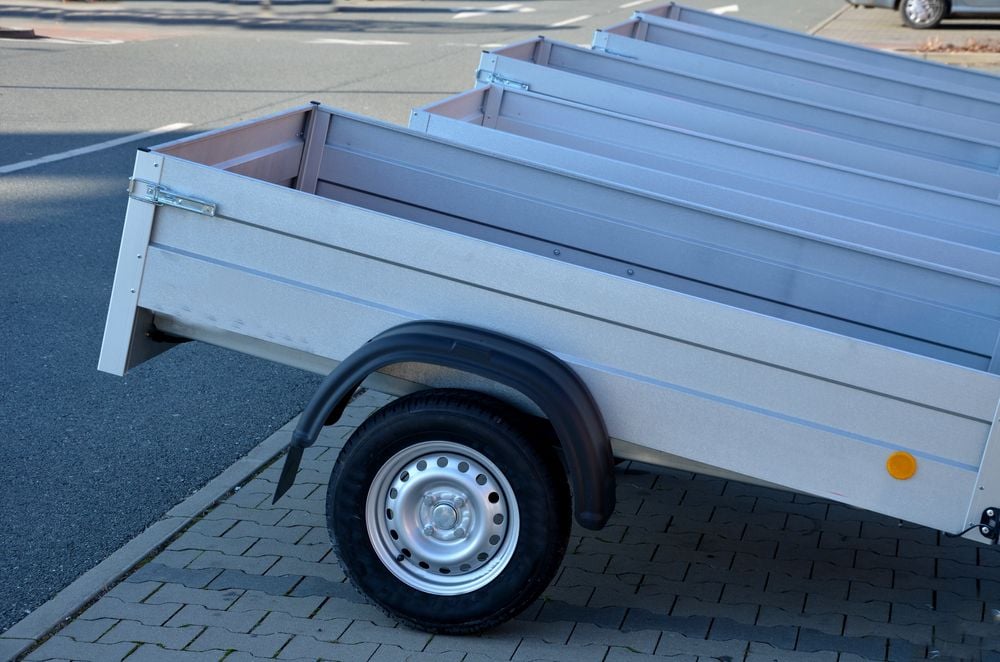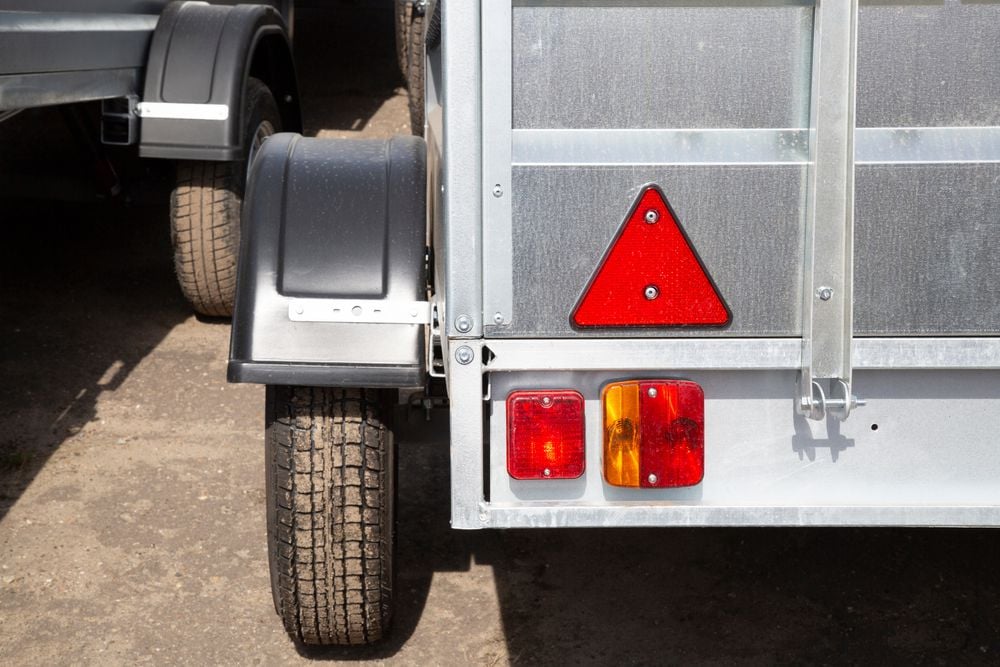You may have seen a set of trailer rims lying around your shop or perhaps seen some on sale at the hardware shop and
been curious if you could use trailer wheels on a car?
It may be tempting, as at first glance trailer wheels and vehicles ratings seem similar, they are in fact quite
different and are rated for different applications.
 Trailer tires on a trailer
Trailer tires on a trailer
Can you use trailer wheels on a car?
Technically speaking, you may be able to fit
trailer wheel or rims on a car but it is recommended not to do so by wheel manufacturers and mechanics for a
variety of reasons.
A vehicle's rim and a trailer's rim are engineered for two different
purposes and using a trailer's rim on a car could lead to catastrophe.
 View of trailer tire from the rear
View of trailer tire from the rear
What Are The Differences Between Trailer Rims And Truck Or Car Rims And Why Aren't They Interchangeable?
So what are the differences between trailer rims and truck or car rims?
The differences
include offset, tires, weight rating, bolt pattern, hub size and testing.
Offset
Vehicles use wheels with high positive offsets which puts the tire closer to the frame than trailer wheels which have
a zero offset.
The advantage of the positive offset is that it allows the wheel and tire to fit properly underneath the fender.
A
trailer has a zero offset to promote even tread wear as a trailer's loads are usually heavier than that of the
vehicle's.
The difference in offset between a vehicle's wheel and a trailer's wheels id going to lead to improper tire
placement. Specifically the wheel is going to stick out too far.
The offset is going to load a car's bearing differently than what they were designed for and most likely out of their
ratings.
Tires
Trailer tires are built with much stronger sidewalls than on tires that are built for vehicles.
The advantage of
stiffer sidewalls is that they are rated for much higher weight than a sidewall on a vehicle's tire.
The advantage
of a softer sidewall is less better ride comfort and better fuel economy.
Weight Rating
Generally a vehicle wheel and tire are rated for a lower weight rating than that of a trailer wheel and tire but
you'll want to make sure to double check.
Testing By The Manufacturer
Trailer wheels and tires are tested for different purposes than a vehicle's rims and tires.
Trailer wheel
manufacturers are more concerned with vertical load limits than anything else which means there may be inherent
differences in the rim when it comes to handling.
Bolt Pattern And Hub Size
You can find trailer wheels with the same bolt pattern as a vehicle's bolt pattern but where you run into trouble is
that the hole for the hub assembly will be a different size.
Factory Warning
Most all trailer wheel or rim manufacturers specifically state on their websites not to use their products on vehicle
applications unless specifically stated.
If there is an accident you may be held liable by the insurance company and others for using the trailer rim in the
incorrect application.
In Conclusion
Don't use trailer wheels or rims on your car.
The difference in cost is negligible and you'll be putting your life
and
the lives of the other people on the road at risk.
Trailer wheels are not engineered and designed to be used on a
vehicle.
The tires and rims are a critical safety component on your car so you should always follow the
manufacturers recommendations on what components to use.